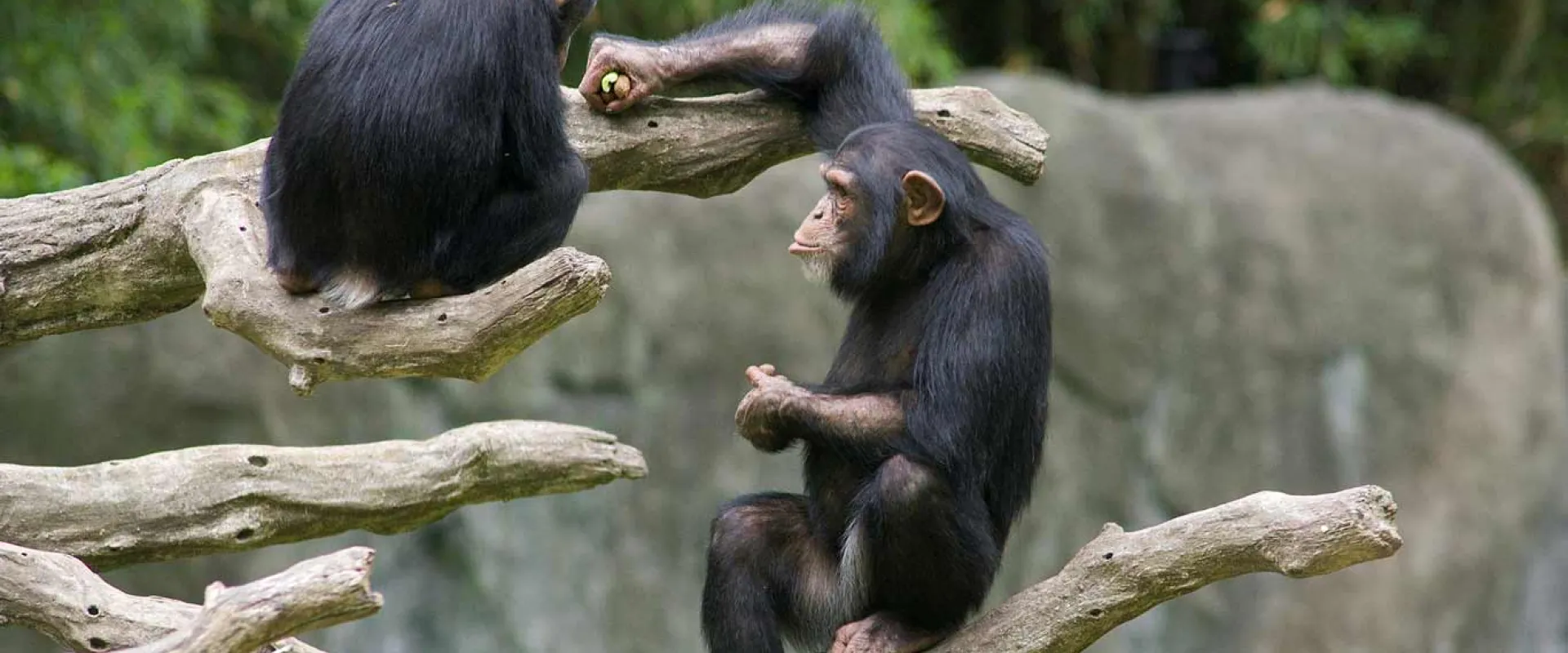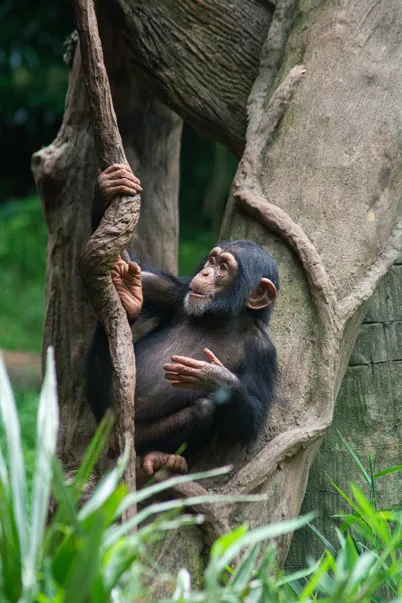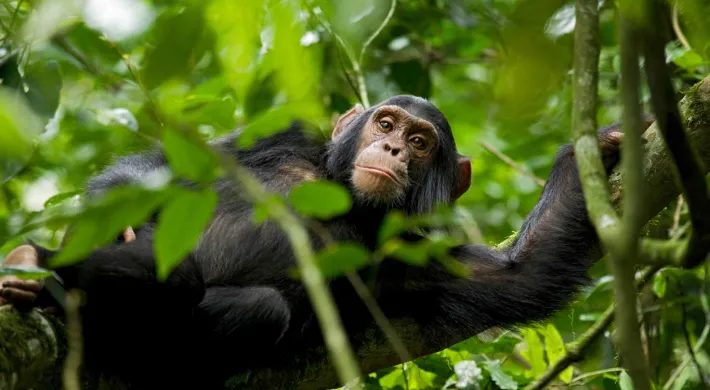Did you know tool use in chimpanzees is passed from adults to juveniles in the troop? Learn more about chimpanzees.
Due to their history as lab animals, pets, or in television, many chimpanzees at the North Carolina Zoo had limited appropriate interactions with other chimps as youngsters. They did not learn the social skills to successfully integrate with other chimpanzees. Fortunately, the Zoo has the resources and expertise to care for chimps with these backgrounds. Working with individual animals, keepers find compatible social partners and build groups around them. To replicate their natural fission/fusion social structure, other chimpanzees move in and out of this group. This increases social experiences and opportunities to learn.
Working with Ngogo Chimpanzee Project, the North Carolina Zoo is able to protect one of the largest chimpanzee population in the wild. The Zoo supports the operation cost of three snare removal teams active in Kibale National Park, Uganda. Armed with Zoo-supplied mobile devices and a database developed here, these teams are trained in the use of new technology to better catalogue the snares they remove. Our support ensures that the Park can be a safe haven for chimpanzees and other wildlife. You can read more about the Zoo’s work on wild chimpanzees below, under related resources.
- Very social, hierarchical society with an alpha (dominant) male and female leading up to 100 troop members
- Well known for using tools to find food, establish territories, and carry water
- Typically walk on all fours, using the soles of their feet and knuckles on the hands
- Can walk upright for short distances and swing through trees
- Extinct in Wild (EW)
- Critically Endangered (CR)
- Endangered (EN)
- Vulnerable (VU)
- Near Threatened (NT)
- Least Concern (LC)
- Not Evaluated (NE)




